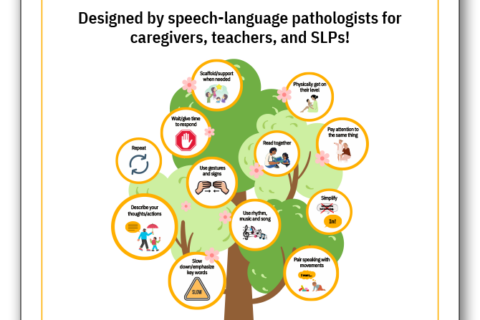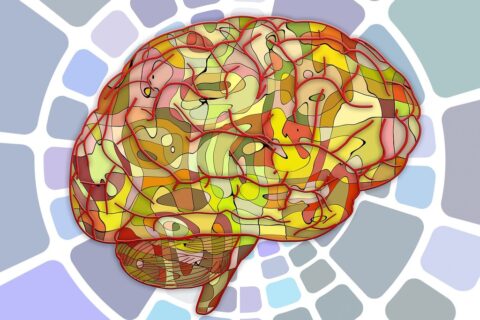Speech Therapy for Kids: A Parent’s Guide to Understanding and Addressing Expressive Language Disorders in Children

It’s common for parents to worry about various aspects of their child’s development. At Open Lines®, we regularly receive questions from families regarding whether their toddler is saying enough words for their age. We also receive questions about how they can help their school-aged child more easily convey what they know in academic settings. Often concerns are compounded by uncertainty about typical developmental expectations, root causes of a child’s particular difficulties, and how to bolster and strengthen areas of weakness.
In this blog, we explore common symptoms of expressive language disorders, how they may present at different ages, and research-founded treatment options and speech therapy exercises that will optimize your child’s language and learning so they can thrive.
Symptoms of Expressive Language Disorders:
An expressive language disorder refers to difficulty expressing one’s thoughts, ideas, or feelings. These challenges can result in difficulty with verbal communication, written expression, or the use of non-verbal communication (e.g., gestures and body language).
Common symptoms include:
- Reduced Vocabulary: Children with expressive language disorders may have a limited repertoire of words for their age and development and may struggle to acquire new words.
- Difficulty Formulating Sentences: Formulating grammatically correct and complex sentences may be challenging for children with expressive language disorders.
- Word Finding Difficulty: Difficulty recalling and retrieving words efficiently, can lead to pauses and hesitations during speech. Language may be characterized by an overreliance on vague, unspecific words (e.g, “thing; it”).
- Weak Narrative Skills: Children may need help linking and sequencing ideas efficiently to tell a coherent and organized story with precise terminology. This symptom may impact both academic and social interactions.
Early Signs of Expressive Language Disorders
For young children of 1-3 years old, an expressive language disorder may present as a delay in saying their first words. Children who have not uttered any words by 15 months may need support strengthening expressive language skills. Children with an expressive language disorder or delay at this age may also exhibit limited use of or difficulty imitating sounds, words, or gestures demonstrated by age-matched peers. At ages 2 and 3, some may demonstrate limited use of two-word or three-word phrases, indicating difficulty connecting ideas and forming longer sentences. For those children with expressive language disorders at this age, it can be difficult to communicate needs and preferences resulting in frustration or resorting to tantrums when unable to communicate effectively.
Moreover, care partners should be aware of signs of limited engagement in verbal communication with others, such as a reluctance to initiate or respond to conversations. If you have concerns about your child’s lack of progress in expressive language compared to other children of the same age, consulting a licensed pediatric speech therapist is recommended. Pediatric speech therapists are specially trained in the science of child language development and will listen to your concerns and offer informed advice.
Expressive Language Challenges in Children
In school-age children, signs of expressive language disorder or delay can present in both verbal and written modalities. Some children may exhibit difficulty effectively explaining the depth and breadth of their knowledge due to word-finding difficulty. This may lead to multiple pauses and breaks in their delivery. Their explanations may rely on vague terminology or contain information out of order which may confuse listeners or force them to draw connections and infer meaning.
Sentence structures may rely on simple sentence forms due to struggles in formulating complex sentences. Because of this, children may struggle to convey more detailed information. Expressing ideas in writing can also be impacted, including poor spelling, grammar, and difficulty initiating writing tasks. These kinds of difficulties make it hard to form detailed descriptions and express intentions, desires, or make requests clearly and effectively. Furthermore, this can affect how confident a child feels about participating in classroom dialogues and social conversations affecting how easily they establish and maintain social relationships.
Expressive language disorders or delays may arise from a variety of factors, including neurological, cognitive, and environmental influences. It’s essential to differentiate an expressive language disorder from typical variations in language development. If these signs persist and significantly impact a child’s academic and social functioning, a thorough evaluation by a licensed pediatric speech therapist is recommended. Early intervention and targeted speech therapy exercises can help improve expressive language skills and support a child’s overall confidence in learning and communicating.
Treatment Approaches:
While early intervention is always recommended, treatment at any age and stage of development can result in significant gains, progress, and confidence in skills. Identifying signs of difficulty in language development and seeking professional guidance ensures that appropriate interventions can be implemented promptly. This allows children to build a strong foundation in language and learning to optimize their personal and academic success.
At Open Lines®, we see every child and their circumstances as unique. That’s why our expert pediatric speech therapists initiate every treatment plan with a personalized, one-to-one comprehensive evaluation of your child’s language skills.
Through standardized and informal assessments, we gather baseline data to understand your child’s strengths and identify areas that may need support and attention. Collaborating with you and your child’s care team (at your preference), we will determine priority goals and establish a plan of action with specific speech therapy exercises to achieve those goals as quickly as possible.
Open Lines® Therapy Programs
Every Open Lines® program adheres to the highest standards of evidence-based treatment techniques and employs multisensory approaches to help your child reach their treatment goals. Our treatment assists in strengthening cognitive tools to reduce word-finding difficulties, expanding vocabulary through multisensory games and drills, or providing graphic organizers and visual aids to facilitate language organization and improved verbal and written narratives.
Engaging in enjoyable and motivating speech therapy exercises and activities tailored for children, the Open Lines® team collaborates with each child and their family, providing the necessary education and techniques to navigate the treatment process smoothly. This ultimately facilitates family connections through language and learning. Together, we aim to support your child’s success in academic settings, enhance their communication and social skills, alleviate frustration related to language difficulties, and boost their confidence.
If you’re struggling with communication difficulties, it’s time to turn to Open Lines®. Contact us via phone (212-430-6800), email [email protected], or by filling out our convenient contact form. Improve your communication skills and unlock your potential with Open Lines® Speech and Communication in New York today!
Get in Touch With Open Lines®














